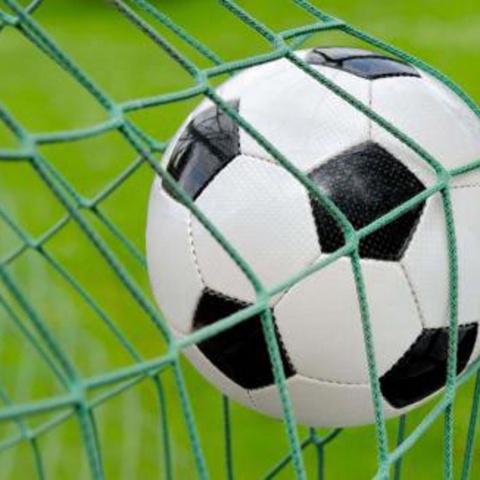
Setting up your pitch on Matchday
On match day you must must organise the following:
Parents and Spectators shall be on one side of the pitch and be behind a respect barrier
Coaches and players should be on the opposite side of the pitch. A resepct line or cones delimating a respect line should be in place. Only coaching staff should be between the pitch line and the respect line.
Parents, Spectators, coaches and players should not be behind the goal area.
Guidance for Match Day Monitors or Managers / Coaches
Before the game
- Wear match day bib (if a parent helper)
- Greet referee and introduce yourself (pay the referee before the game starts)
- Ascertain who your opposite number is
During the game
- Ensure your team’s spectators are behind respect lines
- Monitor your team’s spectators for correct behaviour
- Liaise with and support opponents monitor
- Support Referee / Managers / Coaches
After the game
8. If necessary, prepare report and submit to Club Secretary who will pass it on to League Secretary
Please note: If a match day monitor is not available then the Age Group Manager or a designated Coach must take on this role
Referees
Mini Football
Registered Referees will NOT be appointed to U7, U8, U9 or U10 games.
The hosting club must arrange for a referee to run the games (club referee or club Official). A Referee thus agreed upon shall, for that game, have the full powers, status and authority of a registered Referee.
Basic referee training is available for all managers/coaches – see link here. It is recommended that where possible managers/coaches should undertake the online training.
The appointed Referee shall have power to decide as to the fitness of the ground in all matches and the decision shall be final subject to either in the case of a ground of a Local Authority or the owners of a ground, the Representative of that body is the sole arbiter and whose decision must be accepted.
Youth Football
Referees for U11 to U16 games will be appointed via the Taunton & District Youth League FA Fulltime system where possible. If a referee cannot be apppointed then a suitable referee should be agreed between the clubs to officate the game.
Respect Codes of Conduct
Introduction
Respect brings them to life. How? By supporting and strengthening the Codes of Conduct with possible consequences. There is little point in having a set of rules if no action is taken if and when they’re broken. There are five Codes of Conduct, each listing possible penalties for breaking these ‘promises’. The Codes are aimed at:
- Young Players
- Adult Players
- Spectators and Parents/Carers
- Coaches, Team Managers and Club Officials
- Match Officials
Respect works on placing responsibility for their actions on individuals: break your Code, and bear the consequences.
Codes of Conduct – your member clubs’ responsibilities:
Each Respect Code of Conduct explains that action can be taken for breaking a Code, so these are understood from the outset. Your member clubs have two main responsibilities around the Codes:
1. To ensure everyone within the club, whatever their role, has read, agreed and accepted their relevant Code – and understood the actions which could be taken if Codes are broken.
2. To deal fairly and consistently with anyone who breaks ‘their’ Code. The Charter Standard Clubs in your league should already have their own club Codes of Conduct, so we would recommend that Charter Standard Clubs look at the Respect Codes and see if there is anything missing from these. They may want to replace the previous codes with the new Respect ones, or they may want to add some of the lines from the Respect Codes to these. It is not advisable to use both sets of Codes as this could be confusing.
The important difference is ensuring your member clubs – and through them their own members – understand and appreciate what can happen if Codes are broken. That way, there should be no subsequent debate because they didn’t understand the consequences of breaking a Code. If a club hasn’t used Codes of Conduct before – or has Codes without consequences – this needs discussion, so they understand how the Codes work and what their responsibilities are.
Code of Conduct: Young Players
It is important everyone behaves themselves when playing football. As a player, you have a big part to play. That’s why The FA is asking every player to follow a Respect Code of Conduct.
When playing football, I will:
- Always do my best, even if we’re losing or the other team is stronger
- Play fairly – I won’t cheat, complain or waste time
- Never be rude to my team-mates, the other team, the referee, spectators or my coach/team manager
- Do what the referee tells me
- Shake hands with the other team and referee at the end of the game
- Listen to my coach/team manager and respect what he/she says
- Talk to someone I trust, for example my parents or the club welfare officer if I’m unhappy about anything at my club.
I understand that if I do not follow the code, action may be taken.
Code of Conduct: Spectators
We all have a responsibility to promote high standards of behaviour in the game. This club is supporting The FA’s Respect programme to ensure football can be enjoyed by everyone in a safe and positive environment. Play your part and observe The FA’s Respect Code of Conduct for spectators and parents/carers at all times. I will:
- Remain outside the field of play and behind the Designated Spectator Area (where provided)
- Never engage in, or tolerate, offensive, insulting or abusive language or behaviour
- Always respect the match officials’ decisions
- Applaud effort and good play as well as success
In addition, when attending youth games I will:
- Remember that children play for FUN
- Let the coaches do their job and not confuse the players by telling them what to do
- Encourage the players to respect the opposition and match officials
- Never criticise a player for making a mistake -mistakes are part of learning
I understand that breaches of the code may result in action being taken by my County FA and /or The FA.
Code of Conduct: Coaches
We all have a responsibility to promote high standards of behaviour in the game. In The FA’s survey of over 37,000 grassroots participants, behaviour was the biggest concern in the game. This included both the abuse of match officials and the unacceptable behaviour by over competitive parents, spectators and coaches on the sidelines. The FA’s Respect programme is aimed at tackling unacceptable behaviour across the whole game. Play your part and observe The FA’s Respect Code of Conduct for coaches, team managers and club officials at all times.
I will:
- Show respect to others involved in the game including match officials, opposition players, coaches, managers, officials and spectators
- Adhere to the Laws of the Game
- Display and promote high standards of behaviour
- Always respect the match officials’ decisions
- Never enter the field of play without the referee’s permission
- Never engage in public criticism of the match officials
- Never engage in, or tolerate, offensive, insulting or abusive language or behaviour.
When working with players, I will:
- Place the well-being, safety and enjoyment of each player above everything, including winning
- Explain exactly what I expect of players and what they can expect from me
- Ensure the parents/carers of all players under the age of 18 understand these expectations
- Refrain from, and refuse to tolerate any form of bullying
- Develop mutual trust and respect with every player to build their self-esteem
- Encourage each player to accept responsibility for their own behaviour and performance
- Ensure all activities I organise are appropriate for the players’ ability level, experience, age and maturity
- Co-operate fully with others in football (e.g. officials, doctors, physiotherapists, welfare officers) for each player’s best interests
I understand that breaches of the code may result in action being taken by my County FA and /or The FA.
Code of Conduct: Match Officials
We all have a responsibility to promote high standards of behaviour in the game. The behaviour of the match officials has an impact, directly and indirectly, on the conduct of everyone involved in the game – both on the pitch and on the sidelines. Play your part and observe The FA’s Respect Code of Conduct for Match Officials at all time.
When officiating I will:
- Be honest and completely impartial at all times, irrespective of the teams, players or team officials involved in the match
- Apply the Laws of the Game and competition rules fairly and consistently
- Manage the game in a positive, calm and confident manner
- Deal with all instances of violence, aggression, unsporting behaviour, foul play and other misconduct
- Not tolerate offensive, insulting or abusive language or behaviour from players and officials
- Support my match official colleagues at all times
- Set a positive personal example by promoting good behaviour and showing respect to everyone involved in the game
- Communicate with the players and encourage fair play
- Respond in a clear, calm and confident manner to any appropriate request for clarification by the team captains
- Prepare physically and mentally for every match
- Complete and submit, accurate and concise reports within the time limit required for games which I officiate
Mini Soccer: Code Of Conduct
The Responsible Football Coach/Manager
Code of Conduct for Football
- Coaches/Managers must respect the rights’ dignity and worth of each and every person and treat each equally within the context of the sport
- Coaches/Managers must place the well being and safety of each player above all other considerations, including the development of performance
- Coaches/Managers must adhere to all guidelines laid down within the Constitution and the Rules of The Football Association
- Coaches/Managers must develop an appropriate working relationship with each player based on mutual trust and respect
- Coaches/Managers must not exert undue influence to obtain personal benefit or reward
- Coaches/Managers must encourage and guide players to accept responsibility for their own behavior and performance
- Coaches/Managers must ensure that the activities they direct or advocate is appropriate for the age, maturity, experience and ability of players
- Coaches/Managers should, at the outset, clarify with the player (and, where appropriate, their parents) exactly what is expected of them and also what they are entitled to expect from their coach
- Coaches/Managers must co-operate fully with other specialists (e.g. other coaches, officials, sports scientists, doctors, physiotherapists) in the best interests of the player
- Coaches/Managers must always promote the appropriate Code of Conduct and positive aspects of the sport (e.g. fair play) to players, parents and spectators alike. Never condone violations of the Laws of the Game, behaviour contrary to the spirit of the Laws of the Game or relevant rule and regulations or the use of the prohibited substances or techniques
- Coaches/Managers must consistently display high standards of behaviour and experience and be a role model for players, parents and spectators
I understand that breaches of the code may result in action being taken by my County FA and /or The FA.
FA Guidance on Photography
There has been much talk about whether it’s safe to take pictures of under 18s playing sport. The FA would like to assure parents, carers, coaches, spectators, players and local media that we encourage the taking of appropriate images of children in football.
Potential risks The FA has developed this guidance to help avoid the following:
- The inappropriate use, adaptation or copying of images for use on child abuse websites on the internet (often referred to as pornography sites). The identification of children when a photograph is accompanied by significant personal information that will assist a third party in identifying the child. This can lead, and has led, to children being’groomed’ The identification and locating of children in inappropriate circumstances which include:
- where a child has been removed from his/her family for their own safety. where restrictions on contact with one parent following a parental separation exist e.g. in domestic violence cases. in situations where a child may be a witness in criminal proceedings
- other child protection concerns.
- The majority of images taken are appropriate and taken in good faith. If we take the following simple measures we can help to ensure the safety of children in football.
Common sense considerations to ensure everyone’s safety:
Do
- Share The FA’s guidance on taking images with all parents, carers and members when they join the club. Ensure the club has parental consent to use a player’s image if it is to be used in the public domain e.g. club website or newspaper article. This is essential in relation to point 3 below. Ensure that any child in your club who is under care proceedings, is protected by ensuring that their image is not placed in the public domain. This can be done by using an annual consent form, so that parents/carers can identify if this applies to children in their care (visit www.TheFA.com/Goal and click on the downloads ‘Travel and Trips Advice’ to access atemplate annual consent form). Focus on the activity rather than the individual. Ensure all those featured are appropriately dressed (a minimum of vest or shirt and shorts). Aim to take pictures which represent the broad range of youngsters participating safely in football e.g. boys and girls, disabled people, ethnic minority communities.
- Report any instances of inappropriate images in football to The FA Case Manager or the Internet Watch Foundation (IWF) contact details can be found on the following page.
Don’t
- Publish photographs with the full name(s) of the individual(s) featured unless you have written consent to do so and you have informed the parents as to how the image will be used. Use player profiles with pictures and detailed personal information on websites. Use an image for something other than that for which it was initially agreed, e.g.published in local press when initially produced for a clubhouse commemorative picture.
- Allow images to be recorded in changing rooms, showers or toilets – this includes the use of mobile phones that record images.
Remember
- It’s not an offence to take appropriate photographs in a public place even if asked not to do so. No one has the right to decide who can and cannot take images on public land. If you have serious concerns about a possible child protection issue relating to the recording of images then call the police. This action should only be taken where you believe that someone may be acting unlawfully or putting a child at risk. The land or facility owner can decide whether or not photography and/or videoing of football activities will be permitted when carried out on private land. However you need to make this known before allowing individuals access to the private property. If they do not comply then you may request that they leave.
- Try not to use images that include individuals wearing jewellery (as wearing jewellery whilst playing is contrary to the Laws of the Game as well as being a health and safety issue).
Commissioning professional photographers and the local media If you are commissioning professional photographers or inviting the press to cover a football activity ensure you and they are clear about each other’s expectations. Remember the key is to plan ahead and communicate early on. Provide a clear brief about what is considered appropriate in terms of content and behaviour. Inform them of your club’s commitment to safeguarding children and young people and establish who will hold the recorded images and what they intend to do with them, e.g. place on a website for sale, distribute thumb nails to the club to co-ordinate sales. Issue the professional photographer with identification, which must be worn at all times.
Follow the League Rules
FA Standard Code of Rules for Mini Soccer and Youth Football (SCORY) must be followed at all time.
TDYL Rules must also be followed at all times.
It is a Clubs responsibility to ensure that all its manager and coaches have read and understood the league rules.
Rules can be found on this website here




